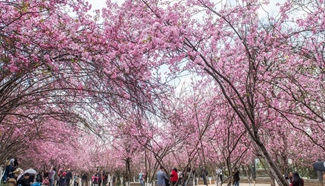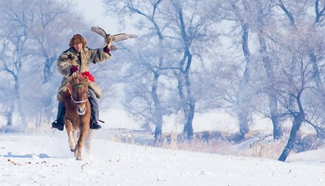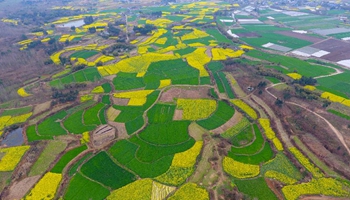CHANGSHA, March 6 (Xinhua) -- A 37-year-old female patient who contracted the H7N9 avian flu virus in central China's Hunan Province had recovered and was discharged on Monday, a local hospital said.
The woman spent 43 days in hospital before her recovery in the Second Xiangya Hospital of Central South University, hospital authorities said.
She had fever and coughing and tested positive for the virus on Jan. 22 this year.
"H7N9 virus can cause direct damage to lung tissue and impair the respiratory function. The biggest challenge was to administer an effective anti-virus treatment and improve her respiratory functions," said doctor Zhang Yan.
H7N9 was first reported in humans in China in March 2013 and is most likely to strike in winter and spring.












